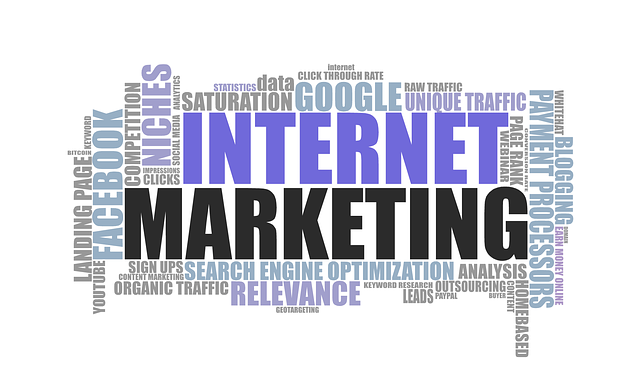AI-driven revenue models are transforming short-term rentals by combining machine learning with historical data, trends, and user behavior. These models help hosts optimize pricing and marketing during peak and slow seasons, maximizing occupancy rates. Integrating AI with dynamic marketing schedules for seasonal listings allows hosts to predict demand changes throughout the year based on booking history, weather, events, and holidays. This strategic promotion and pricing ensure optimal occupancy and competitive rates, making AI a powerful tool in the competitive short-term rental market.
“In the ever-evolving landscape of short-term rentals, Artificial Intelligence (AI) is revolutionizing revenue prediction and strategic decision-making. This article explores the power of AI in forecasting rental income, particularly focusing on seasonal listing dynamics. We delve into how machine learning algorithms can analyze historical data to predict demand patterns, optimizing pricing strategies.
Additionally, we discuss integrating AI with dynamic marketing schedules for seasonal listings, enhancing visibility and attracting guests. By harnessing these technologies, hosts can maximize revenue and provide a seamless experience.”
- Understanding AI-Driven Revenue Prediction for Short Term Rentals
- Integrating Seasonal Listing Dynamics with Machine Learning Algorithms
- Optimizing Marketing Strategies through AI for Enhanced Rental Income
Understanding AI-Driven Revenue Prediction for Short Term Rentals

AI-driven revenue prediction models are transforming the short-term rental industry by offering unprecedented insights and optimization opportunities. These models leverage machine learning algorithms to analyze vast amounts of historical data, market trends, and user behavior patterns to forecast revenue with remarkable accuracy. By understanding seasonal variations and demand fluctuations, AI can dynamically adjust pricing strategies and marketing schedules for individual listings. This ensures that hosts maximize occupancy rates during peak seasons while minimizing losses during slow periods.
Moreover, AI-based prediction models facilitate personalized marketing approaches by segmenting guests based on preferences and historical bookings. An AI dynamic marketing schedule for seasonal listings takes into account specific market demands, adjusting promotional strategies to target the right audience at the opportune moment. This not only enhances guest experiences but also boosts revenue by attracting suitable guests who are more likely to convert and return.
Integrating Seasonal Listing Dynamics with Machine Learning Algorithms

Integrating seasonal listing dynamics with machine learning algorithms is a game-changer in the short-term rental market. By understanding seasonal trends and patterns, AI models can predict demand fluctuations and optimize pricing strategies accordingly. This approach allows for the creation of dynamic marketing schedules tailored to each listing, ensuring maximum occupancy during off-peak seasons while maintaining competitive rates during peak travel times.
AI algorithms can analyze historical data on booking patterns, weather conditions, local events, and holiday calendars to identify seasonality trends. These insights enable hosts to adjust their listing visibility and pricing in real time. For instance, implementing an AI dynamic marketing schedule for seasonal listings could involve increasing promotion for properties near popular destinations during summer vacations or offering last-minute discounts for areas experiencing a sudden surge in demand due to local festivals.
Optimizing Marketing Strategies through AI for Enhanced Rental Income

In today’s competitive short-term rental market, optimizing marketing strategies is key to maximizing revenue. Artificial Intelligence (AI) offers a powerful tool for achieving this by enabling dynamic pricing and tailored advertising. By analyzing vast amounts of data on past bookings, local trends, and seasonal variations, AI algorithms can predict the best time to list properties and set prices accordingly. This ensures that listings are optimized for high-demand periods, such as peak travel seasons or local events, leading to increased rental income.
Furthermore, AI can automate the creation of personalized marketing schedules. Using a dynamic marketing strategy tailored to each listing’s seasonality, AI algorithms can target specific demographics and preferences during different times of the year. This targeted approach enhances visibility among relevant audiences, ensuring that properties are not only listed at optimal prices but also reach the right potential tenants. As a result, landlords and property managers can focus on providing exceptional guest experiences while letting AI handle the strategic marketing aspects, ultimately driving higher revenue.
AI-driven revenue prediction models, by integrating seasonal listing dynamics and optimizing marketing strategies, offer a game-changing approach for short term rental businesses. By leveraging machine learning algorithms, hosts can create more accurate pricing strategies, maximize rental income, and efficiently manage their properties in today’s competitive market. In terms of AI dynamic marketing schedules for seasonal listings, the potential to attract guests and boost occupancy rates is significant, making it a vital tool for anyone looking to succeed in the short term rental industry.
